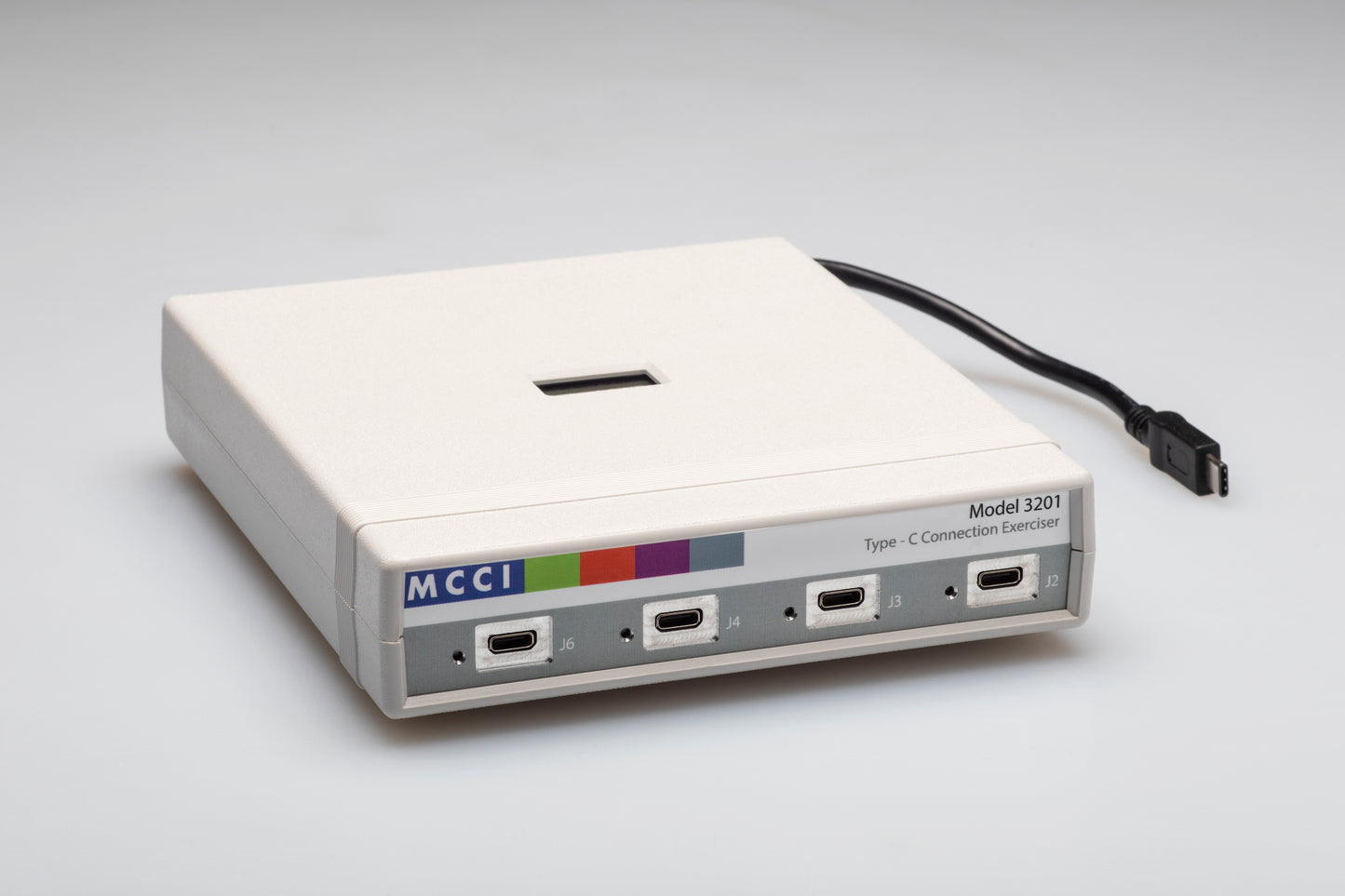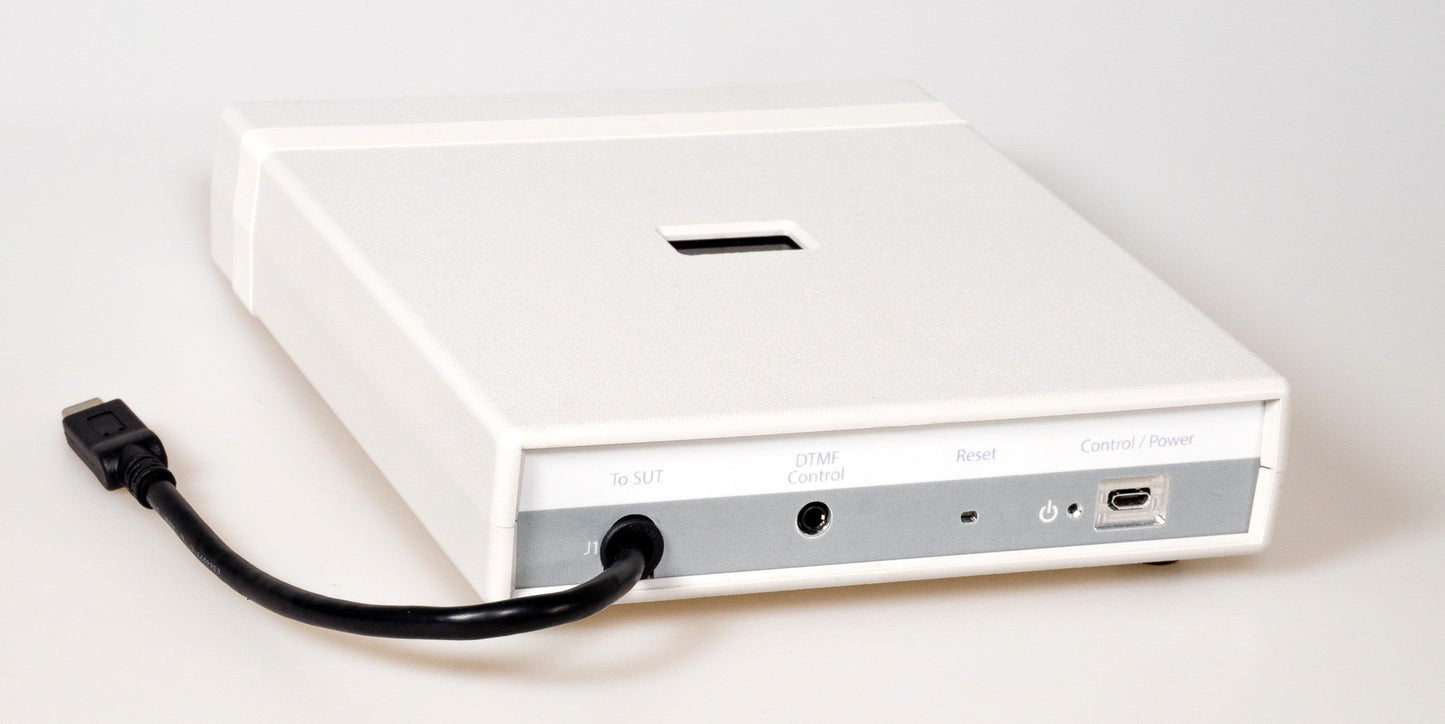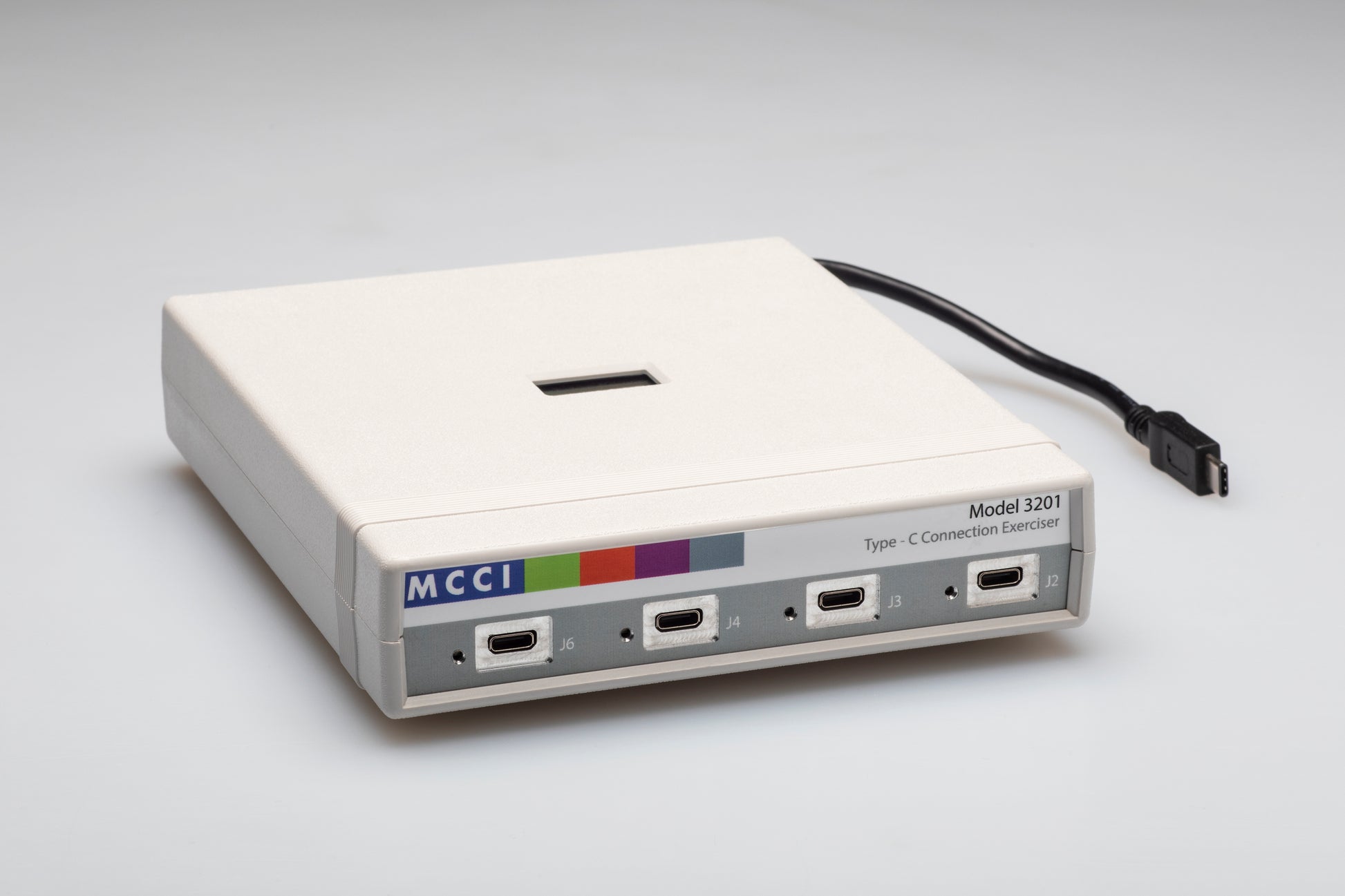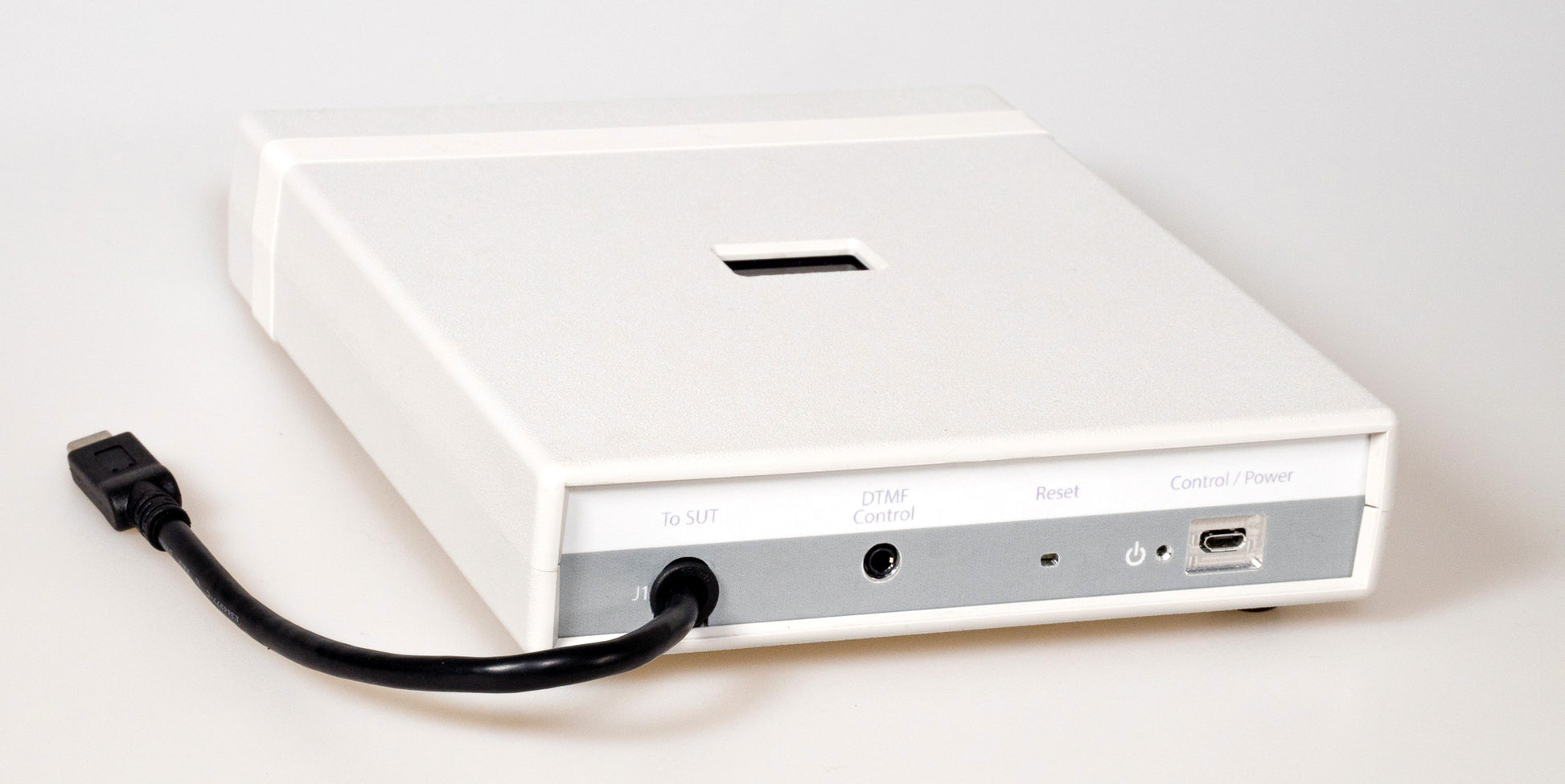MCCI Model 3201 Enhanced Type-C Connection Exerciser
MCCI Model 3201 Enhanced Type-C Connection Exerciser
SKU:123003913
46 in stock
Couldn't load pickup availability
The MCCI model 3201 Enhanced Type-C Connection Exerciser (MUTT ConnEX-C) plugs and unplugs up to 4 USB-C® devices for automated testing of USB Type-C® products. Developed in conjunction with Microsoft, the 3201 is upward compatible with the MCCI Model 3101/Model 3201 Connection Exercisers and the Microsoft MUTT ConnEx-C, but has a number of significant enhancements and improvements.
- The Model 3201 comes in an enclosure, for protection and robustness.
- A special tethered Type C cable is used for connecting to the system under test, rather than the paddle-board design used on the Model 3101/3102.
- The electronics of the Model 3201 are a single PC board with the Arduino integrated onto the board, increasing reliability and reducing size.
- The Model 3201 includes both USB control and DTMF control.
- The Model 3201 has four Type-C ports; two support USB 3.1 gen1 and gen2, as well as high speed, full speed and low speed USB. The remaining two ports only support high speed, full speed and low speed USB. The model 3101 and 3201 have similar capabilities, but use a type A connector for one of the legacy ports, and a micro B for the second legacy port.
- The Model 3201 includes an FPGA capable of communicating using the USB PD protocols. This can be used in the future for communicating using the SOP'_Debug ordered set, allowing test control without an extra cable.
The Model 3201 comes complete as an Arduino-compatible device with pre-installed firmware, assembled and tested as a unit. A USB cable (standard A/standard B) is included for connecting to the control computer or to a USB charger for power.
The 3201 can test hardware that belongs to one of the following categories:
System: Desktops, laptops, tablets, servers, or phones running a SKU of version of the Windows Operating System with an exposed USB Type-C port.
Dock: Any USB Type-C device that exposes more than one port.
Device: Any USB device with a USB Type-C port that can be attached to a system or dock. This category includes traditional USB devices as well as devices that support the accessory and alternate modes as defined in the USB Type-C Specification.
The Model 3201 Type-C Connection Exerciser features:
- Automated USB Type-C interoperability testing.
- Control via USB or DTMF audio control.
- Transparent connection between SUT and DUT when in the connected state.
- All four ports can support USB PD protocol and handle power up to 100W.
- Two ports support USB 3.2 gen2, USB 3.2 gen1, and USB 2.0; the remaining two ports are USB 2.0 only.
- Impedance controlled, low loss USB data path.
- Uses Pericom PI3DBS12412A in a 12Gbps, 8 to 4 differential channel multiplexer/demultiplexer switch for SuperSpeed signals.
- Uses Fairchild FSUSB74. 4:1 High-Speed USB Multiplexer/Switch for USB2.0, CC, and SB signals.
- Uses TI INA226 to measure voltage and current.
- 10milliohm, 0.5%, series current sense resistor.
- Handles up to 20V and 5A on VBUS.
- Uses IXYS CPC1907B SSR to switch VBUS on Type-C connectors.
- Uses COTO C226S SSR to switch VBUS on USB 2.0 connectors.
The 3201 ships from MCCI's offices in Ithaca, NY.
The Arduino board support package for the Model 3201 is available on Github. Instructions are here: https://github.com/mcci-catena/arduino-boards.
The 3201 is accessed as a USB CDC ACM COM port, and is supported on Windows 10 without any additional drivers. Drivers for Windows 7 through 8.1 are available here.
Replacement USB cables are available here.
In addition to these, MCCI developed and released a convenient and user friendly software "MCCI USB Switch 3141/3201 GUI" to control the Model 3201. Here is download link https://portal.mcci.com/portal/en/kb/articles/mcci-usb-switch-3141-3201-gui
Technical Documents
USB-C and USB Type-C are trademarks of the USB Implementers Forum. MCCI and MCCI Catena are registered trademarks of MCCI Corporation. All other trademarks are the property of their respective owners




